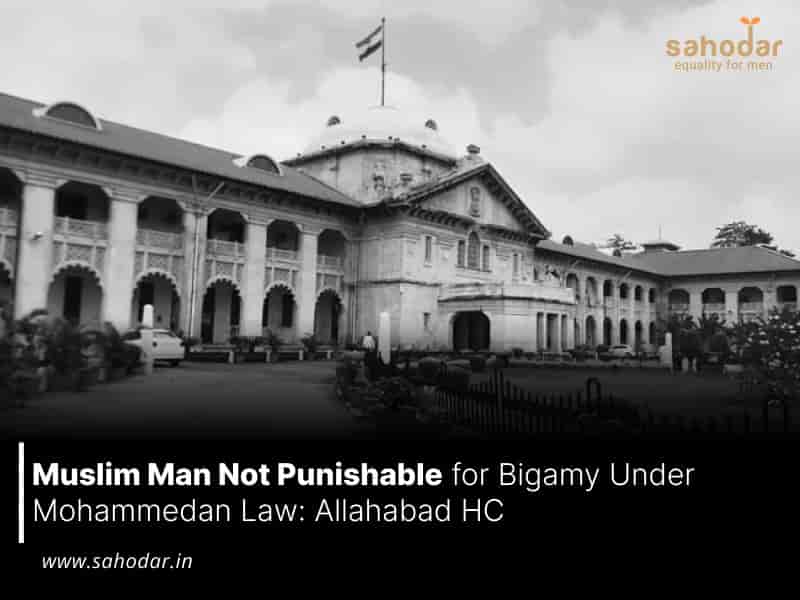Court observed that the Quran allows polygamy for a fair reason but it has been used by Muslim men for selfish reasons.
The Allahabad High Court has ruled that a Muslim man cannot be charged with bigamy for having multiple wives if the marriages were solemnised in accordance with Mohammedan law [Furkan and Others v State of UP and Another].
Justice Arun Kumar Singh Deshwal clarified that bigamy charges would apply only if the first marriage had been declared void.
The Court further held that bigamy would also be applicable if the first marriage was conducted under the Special Marriage Act, Foreign Marriage Act, Christian Marriage Act, Parsi Marriage and Divorce Act, or Hindu Marriage Act, and the man subsequently married under Mohammedan law after converting to Islam.
“The Family Court has also jurisdiction u/s 7 of the Family Court Act to decide validity of a Muslim marriage performed in accordance with the Muslim Personal Law,” the Bench held.
The Court noted that the right to religious freedom under Article 25 of the Indian Constitution is not absolute.
“This Court would further like to observe that Article 25 of the Constitution of India gives religious freedom to profess, practice and propagate, which also includes external overt acts of individual as per his religious faith, but this right is subject to public order, morality and health and other provisions of Part-III of the Constitution. Therefore, religious liberty under Article 25 is not unfettered and can be regulated by the State.”
The Bench emphasized that while the Quran permits polygamy for justifiable reasons, it has often been misused by men for selfish motives.
Justice Deshwal noted that polygamy is mentioned only once in the Quran and was permitted due to specific historical circumstances.
“There was a time in history when a large number of women were widowed, and children were orphaned in primitive tribal tussles in Arabs. The Muslims suffered heavy casualties in defending the nascent Islamic community in Medina. It was under such circumstances that the Quran allowed conditional polygamy to protect orphans and their mothers from exploitation,” the Bench observed.
The Court stated that polygamy, as mentioned in the holy book, is subject to certain conditions.
“…it is clear that the Quran asks men first consider taking care of the orphans and only when they think they may not be able to do justice to the orphans’ interests while staying in isolation, should they consider marrying their widowed mothers, on the condition that the new family would be dealt with justly on par with the existing one.”
Observing the misuse of this liberty, the Court remarked that the legislature should consider implementing a Uniform Civil Code.
These observations were made while hearing a plea by a man named Furkan, who sought the quashing of the chargesheet and criminal proceedings against him for alleged offences including bigamy and rape.
The case arose after a woman claimed that Furkan concealed his existing marriage at the time of their wedding.
Furkan, however, contended that Muslim law permits a man to have up to four wives.
After examining the matter, the Court held that the charges of bigamy and rape did not apply in this case, as the marriage was legally valid.
It further noted that the case warrants deeper examination.
Accordingly, the Court issued a notice to the complainant and directed the police not to take any coercive action against Furkan and the other accused.

